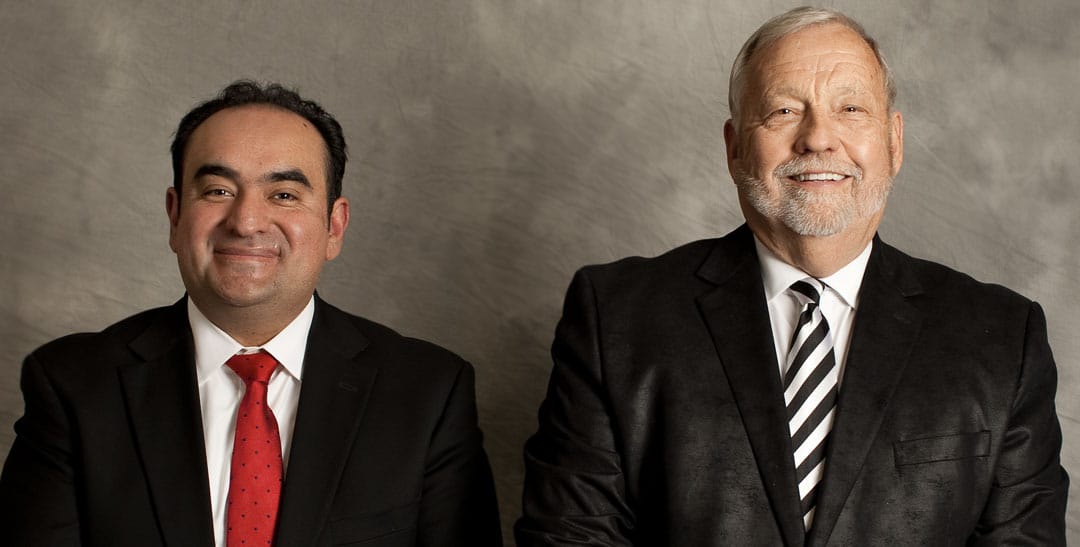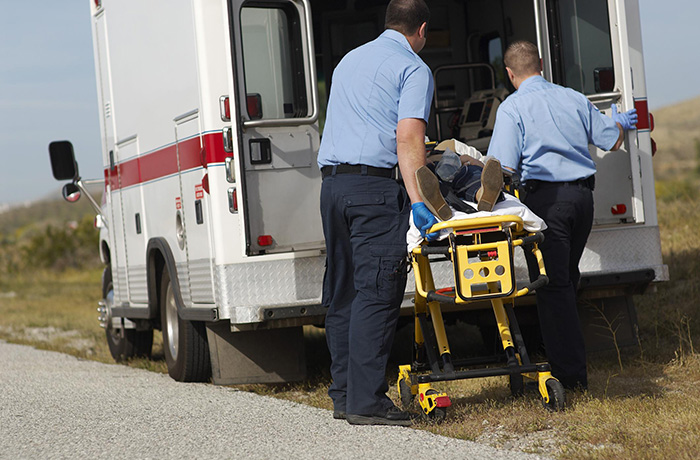How ambulance drivers, EMTs and paramedics in Arizona can obtain their workers’ compensation benefits
Emergency medical technicians in Arizona spend their work week helping people who are at the worst moments of their lives. Their office can be anywhere. They might start the day on the side of the street helping with a car accident and end the day in a residential home responding to a medical emergency, always adapting to the diverse and often challenging situations they encounter.
Given the unpredictable and high-risk nature of their jobs, it’s no surprise that these workers frequently suffer on-the-job injuries. Fortunately, workers’ compensation provides a financial safety net during their recoveries, but it’s crucial for workers to understand their rights and responsibilities to maximize their compensation.
Workers’ compensation is all we do, and we do it well.
Without professional representation, many injured workers fail to receive the justice and compensation they deserve.
When an EMS worker is hurt on the job, workers’ compensation benefits may be awarded. We’ve represented first responders and their families for 45 years.
If you were seriously injured as an EMS, EMT, paramedic or ambulance driver, discuss your rights with our workers’ compensation attorney. There’s no initial consultation fee to discuss your case with our experienced worker injury attorneys, and no upfront fees if you decide to hire us to represent you. You only pay if we are successful in obtaining benefits for you.
It costs no more to have the best!
Integrity, Care and Compassion
“You have shown integrity, care and compassion concerning my case – as well as my self – personally, which most would not have bothered themselves with. This personal touch counts and I will definitely toot your horn for you whenever there is a need or opportunity to do so. Again, I thank you and I greatly appreciate what you have all done for me. You will all be in my heart and mind. Sincerely and with great appreciation.” – K.S.
What is the most common injury in EMS?
The most common injury for EMS workers is muscle sprains and strains, accounting for 24% of EMS injuries in 2020 (or about 4,000 injuries). Other common types of on-the-job injuries experienced by EMS workers include:
- Back and neck injuries
- Shoulder injuries
- Traumatic brain injuries
- Spinal cord injuries
- Amputation injuries
- Punctures, cuts and lacerations (including needle sticks)
- Infections and contagious diseases
- PTSD and emotional trauma
- Death
What is the greatest risk of injury to EMS personnel?
Overexertion, a general term for pushing a body beyond its limits, is the number one cause of injury for EMS workers, accounting for almost 1 in 3 injuries in 2020. Other leading causes of injury that year include the following:
- Violence (18% of injuries)
- Harmful exposures (15% of injuries)
- Vehicle accidents (15% of injuries)
- Contact with objects and equipment (12% of injuries)
- Slips, trips and falls (10% of injuries)
Understanding and addressing these common causes of injury can significantly improve the safety and well-being of these frontline workers.
How to prevent EMS workplace injuries and deaths
To prevent workplace injuries and exposures for EMS workers and all employees, the National Institute for Occupational Safety and Health recommends the following safety practices:
- Keep workers safe by promoting policies, programs and activities encouraging safety, health and well-being in the workplace. Establish a workplace that supports healthy eating, exercise and good sleep habits. Give workers access to mental health services and encourage the use of these services.
- Train workers on how to safely handle patients. Make patient-handling protective equipment available, and train workers to use this equipment on-scene. Instruct workers on how to properly lift and transport equipment and patients without hurting themselves.
- Avoid slips, trips and falls. Show workers how to locate and prevent fall risks. Implement policies requiring workers to wear proper footwear that is slip-resistant.
- Protect workers from being exposed to toxic substances, blood and other body fluids. Establish a detailed plan to address exposure control and properly train employees to follow safe procedures when handling or disposing of potentially infectious substances. Provide the necessary PPE to keep workers in compliance with industry standards.
- Prevent motor vehicle injuries. Set policies that require workers to wear seat belts in ambulances and prohibit the use of cell phones when behind the wheel (texting and driving). Make sure equipment can be properly secured in the patient compartment and driver cab.
- Reduce risk of patient violence. Implement risk management policies that prevent workplace violence injuries caused by patients, such as de-escalation and self-defense training.
Additional safety tips for EMS workers
Below are a few more things EMS workers can do to stay safe while working in dangerous situations:
- Make the scene safe. It’s a routine part of your training, but when you’re caught in the moment with someone who needs care right now, it’s easy to dismiss. Take the extra couple moments to make sure there are no hazards that are going to be a danger to you or the others on the scene.
- Watch out for yourself and your colleagues. When you’re working in a situation where people’s lives are at stake, it’s easy to lose track of the things that are happening in the background. If you’re going to be in a situation where you won’t be able to care for your patient and watch your surroundings, ask someone to keep an eye on the scene and watch for things that might be unsafe.
- Ask for help when you need it. There are any number of unexpected things that can happen when you’re on a scene, and the need for an extra set of eyes or hands could come up fast. Know who your resources are and when you need extra help. It’s always better to ask for help earlier than you need it to make sure everyone on the scene is safe.
- Practice proper lifting. Unfortunately, when you’re called to a scene, it’s not because someone collapsed on a stretcher. As an EMT, you spend a lot of time doing awkward bending and lifting, which is why muscle sprains and strains are so common. Remembering to practice proper lifting techniques when possible can significantly reduce your chance of injury.
Case Results
Bob Wisniewski gets the Arizona Court of Appeals to reverse the trial court’s decision. The trial court at the Industrial Commission of Arizona originally denied benefits to a police officer for post-traumatic stress disorder (PTSD). They held that the officer failed to file his claim within 1 year on the basis he “knew or should have known” he had PTSD. Wisniewski argued on appeal that the standard requires a medical diagnosis of a condition, not a layman’s perception. The court agreed and reversed the decision of the Industrial Commission of Arizona.
This court decision is significant, not only for this officer but for all first responders. Post-traumatic stress disorder often takes a long time to manifest its symptoms, and this now helps first responders who timely file after a medical diagnosis.
Compensation for paramedics injured in the line of duty
As with most employees in Arizona, EMS workers are entitled to certain workers’ compensation benefits if they get hurt on the job. If they are tragically killed in a fatal work-related accident, their surviving spouse and family may seek benefits for their loss.
If they’re injured in the line of duty, injured paramedics, EMTs and ambulance drivers can seek compensation from their department to help cover the costs of a work-related injury or illness. You may be eligible for workers’ compensation benefits such as:
- Medical expenses
- Lost wages and disability
- Death benefits (in the event of a work-related fatality)
Your benefit amount will vary depending on the type and nature of your injury, so it’s highly recommended that you discuss your situation with an experienced workers’ compensation attorney before accepting a settlement to ensure you’re getting the compensation you’re entitled to.
Are Arizona EMS workers entitled to compensation for PTSD?
Yes, first responders are entitled to benefits for mental health conditions such as PTSD and depression if it can be proven that it arose during the course and scope of their employment. Currently, these benefits aren’t widely available to all workers in Arizona and have only been made recently available for Arizona first responders.
Nevertheless, these PTSD benefits are crucial since EMS workers are 1.39 times more likely to die by suicide than the general public, according to the CDC.
More than a decade ago, attorney Bob Wisniewski was responsible for litigating the first police PTSD case acknowledged by Arizona law at the Industrial Commission of Arizona.
Since then, Wisniewski has successfully represented police, firefighters and other first responders in their PTSD claims and has become a nationally recognized attorney expert in the prosecution of these complex workers’ compensation matters.
How to file an EMS workers’ compensation claim in Arizona
To get workers’ comp benefits after an injury, it’s necessary to take certain steps.
- After your work-related injury or illness, you should immediately seek medical attention. Be sure to inform the health care provider that you were hurt in a work-related accident so that you’ll have the necessary documentation linking your injury to your job.
- Next, be sure to notify your employer of your injury as soon as possible. They will then be required to notify their workers’ comp insurer of the injury, but you’ll need to fill out and submit the necessary forms to begin the claims process.
- Finally, contact an experienced workers’ compensation attorney who has represented EMS workers and first responders before. They can help guide you through the process in the most efficient and effective way to ensure your rights are protected and prevent a denied claim.
Like all workers’ compensation claims, EMS work injury claims must be filed with the Industrial Commission of Arizona within 1 year from the date of the injury. If your claim is denied, you can appeal to the Industrial Commission to have an administrative law judge review the case, but it’s highly recommended that you hire an attorney to help you with the process.
Help for law enforcement officers & first responders injured on the job

Can you receive compensation for job-related mental stress?
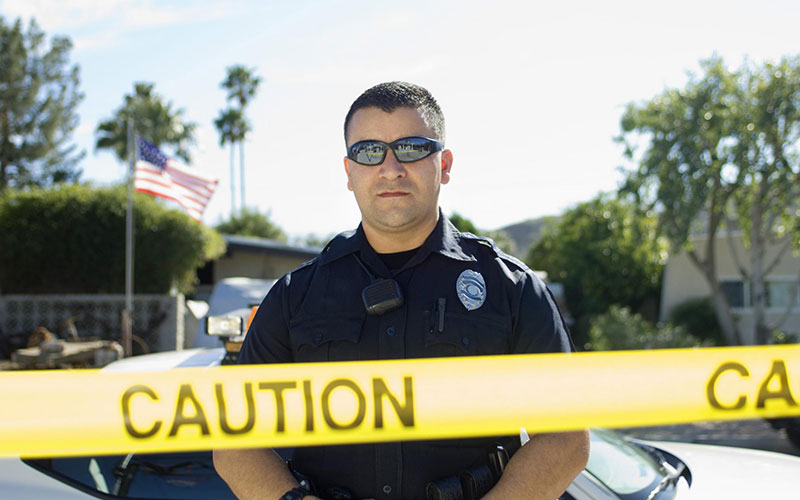
Our experienced workers’ compensation lawyers stand up for police officers injured on duty.
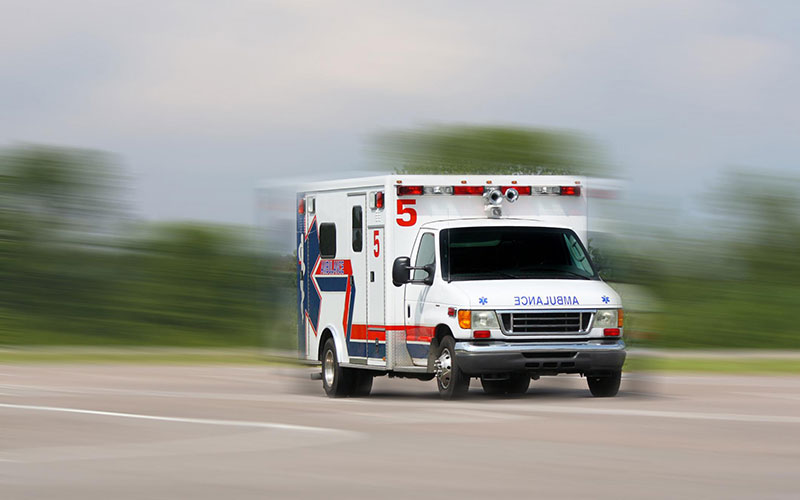
How ambulance drivers, EMTs and paramedics in Arizona can obtain their workers’ compensation benefits
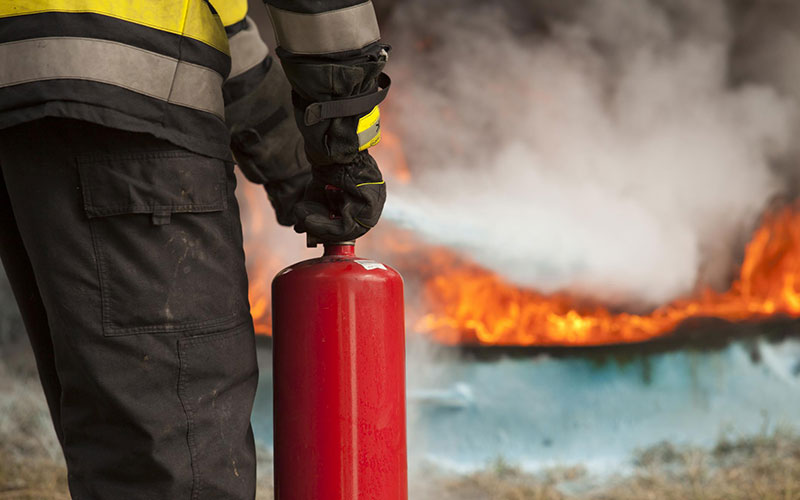
How Arizona workers’ compensation law applies to firefighters injured or killed in the line of duty

Working with PTSD may not be easy, but it can be manageable.
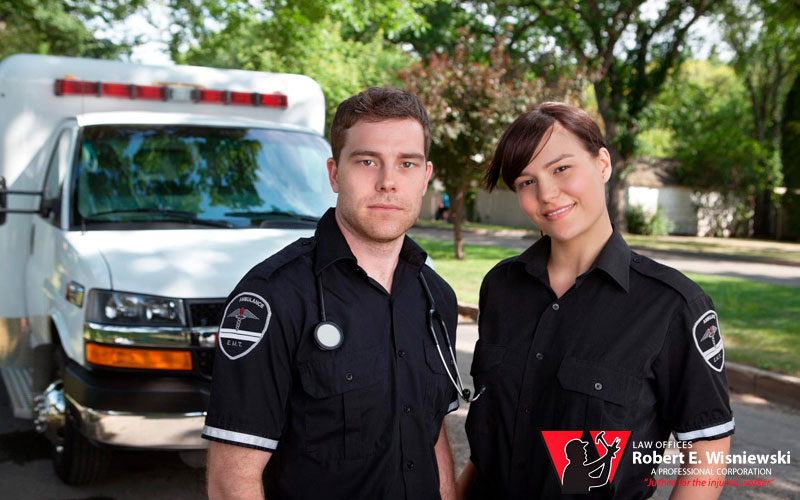
A critical appeals case was decided in favor of police, firefighters and first responders.

Workers’ compensation certified specialist. PTSD lawyer for first responders and police officers.
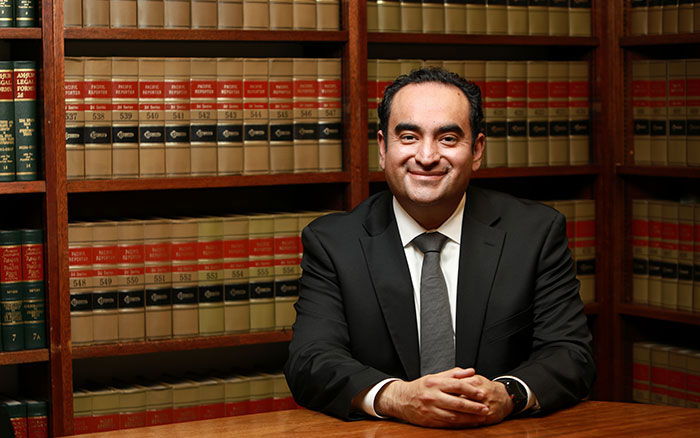
Certified workers’ compensation specialist under the Arizona Board of Legal Specialization
Questions and answers about compensation for a job-related accident, injury or illness in Arizona
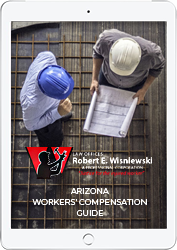
Arizona Workers’ Compensation Guide
FREE E-BOOKWhat do you do if you’re injured on-the-job? Our free guide contains knowledge to help the injured worker understand the workers’ compensation application process.
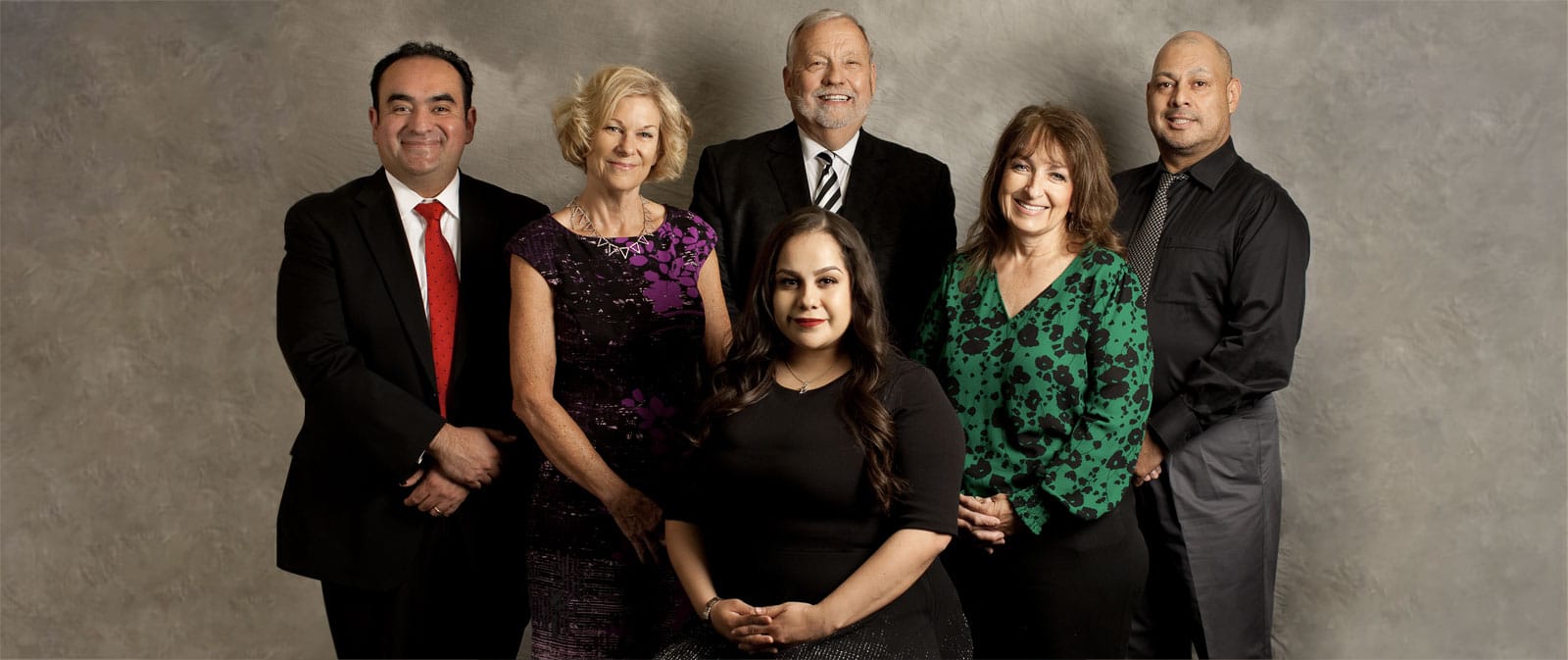
Mr. Wisniewski has been recognized as the premier workers’ compensation lawyer in Arizona. He is the only claimants’ attorney recognized as a Fellow of The College of Workers’ Compensation.
"It costs no more to hire the best."
Get help after an EMS injury from an experienced Arizona work injury attorney
If you’re an EMS worker in Phoenix and have suffered an injury on the job, you don’t have to navigate the complexities of workers’ comp alone. Reach out to the Law Offices of Robert E. Wisniewski for expert guidance. We’ve been specializing in workers’ comp cases and helping injured Arizona workers for over 45 years, and we’re ready to fight for you too.
Contact us today to schedule a free consultation.
Why hire our Arizona workers’ comp lawyers?
- We understand the special needs of an injured worker
- Trained and helpful staff
- Personal attention to clients
- Calls promptly returned
- Clients kept up-to-date on case
- State-wide service
- Aggressive & experienced representation
- Hablamos español
While our main law office is in downtown Phoenix, we handle workers’ compensation claims throughout Arizona – including Yuma, Kingman, Payson and Flagstaff.
